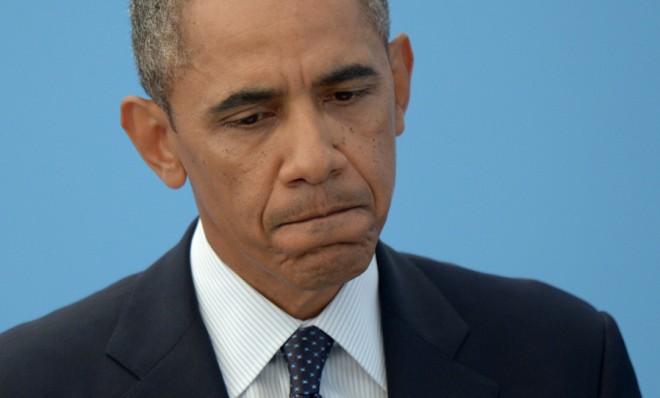The widening political divide over Syria
Obama and Congress keep moving farther apart. And the quagmire is in the details.

A free daily email with the biggest news stories of the day – and the best features from TheWeek.com
You are now subscribed
Your newsletter sign-up was successful
After Syria crossed the White House's "red line" by allegedly using chemical weapons to kill more than 1,400 people near Damascus, President Barack Obama made his case for military action against the regime of Syrian President Bashar al-Assad.
"I have no interest in any open-ended conflict in Syria," he stressed. "But we do have to make sure that when countries break international norms on weapons like chemical weapons that could threaten us, that they are held accountable."
Now he faces the challenge of nailing down the details of a strike that risks either being ineffective or bogging down the United States in another unpopular war.
The Week
Escape your echo chamber. Get the facts behind the news, plus analysis from multiple perspectives.

Sign up for The Week's Free Newsletters
From our morning news briefing to a weekly Good News Newsletter, get the best of The Week delivered directly to your inbox.
From our morning news briefing to a weekly Good News Newsletter, get the best of The Week delivered directly to your inbox.
"Deep inside the Pentagon, General Goldilocks and her war planners are now in the final stages of calibrating U.S. war plans to attack Syria — not too big, or too small, but just right," wrote TIME's Mark Thompson. "The Obama administration, which came into office vowing to end the wars in Afghanistan and Iraq, needs to convince a war-weary U.S. public that it isn't being dragged into a third Middle Eastern conflict."
The White House decided to take its case for military intervention to the people via Congress — and now Obama's chances of convincing Congress to approve a strike against Syria aren't looking good.
Winning over the House is Obama's most pressing task. The whip count shows a coalition of libertarian-leaning Republicans and cautious Democrats that would — if the vote were today — shut down Obama's plan. The House, however, is waiting to see what the Senate comes up with before voting.
There's hardly a consensus in the upper chamber either. On one side, hawkish senators are claiming that military strikes would be pointless if Assad stays in power.
A free daily email with the biggest news stories of the day – and the best features from TheWeek.com
Sen. John McCain (R-Ariz.) declined to support an early version of a Senate Foreign Relations Committee resolution because it failed to include language that allowed the U.S. military to use more than just cruise missile strikes to reverse "battlefield momentum" and oust the Syrian government.
Sen. Marco Rubio (R-Fla.), who has criticized Obama for delaying action and giving the Syrian army time to respond, agreed with the sentiment.
"The only thing that will prevent Assad from using chemical weapons in the future is for the Syrian people to remove him from power," he said.
On the other side, several senators have pointed to polls showing that most Americans oppose military action, and are taking a much more cautious approach towards dealing with Assad.
A resolution being drafted by Sens. Joe Manchin (D-W.Va.) and Heidi Heitkamp (D-N.D.) would give Syria 45 days to sign an international chemical weapons ban or face a U.S. response, according to Politico.
In that 45-day period, Obama would have to submit a long-term strategy for Syria and show that he has used every diplomatic tool available to gather international support. If Assad refuses to sign the ban, the proposal claims "all elements of national power will be considered by the United States government."
The draft proposal is "still a work in progress," a Heitkamp spokesperson told Politico, but it reflects the more dovish previous statements of its drafters.
On Friday, The New York Times reported that the Obama administration had expanded its list of potential targets in Syria to include the military units that prepared and launched the alleged chemical weapons attacks, headquarters of the officials who oversaw the operation, and the artillery that reportedly delivered the attack — a report that Obama dismissed as "inaccurate."
A day earlier, The Wall Street Journal reported that the Pentagon was planning to use Air Force bombers to supplement the four Navy destroyers in the area, a risk considering Syria's capable air-defense systems purchased from Russia.
That possibility, argued the National Review's Jim Geraghty, could lead to a level of military involvement that lawmakers like Sens. Manchin and Heitkamp fear.
"U.S. planes can be shot down," he wrote. "When they are shot down, we attempt to rescue our pilots. And then we have, at least for a short time period, several dozen 'boots on the ground.'"
Keith Wagstaff is a staff writer at TheWeek.com covering politics and current events. He has previously written for such publications as TIME, Details, VICE, and the Village Voice.